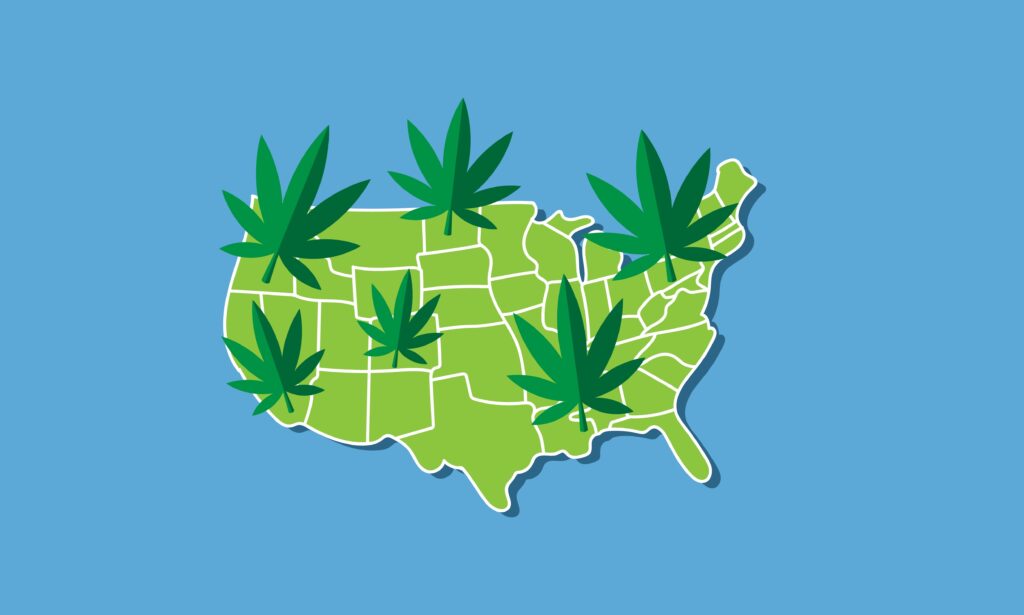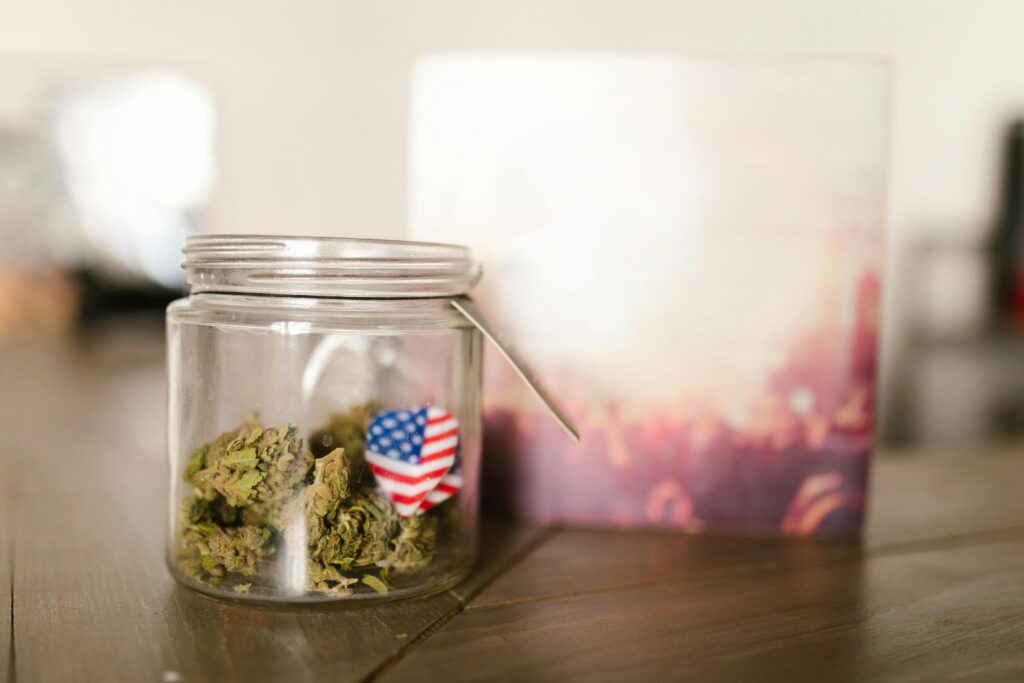President Donald Trump confirmed on August 11 that his administration is reviewing whether to reclassify marijuana under federal regulations, a move that could mark the biggest shift in US cannabis policy in more than 50 years.
“We’re looking at reclassification and we’ll make a determination over the next few weeks,” Trump told reporters during a press conference. He said he has heard “great things having to do with medical” marijuana use, but “bad things having to do with just about everything else.”
Where marijuana sits under federal law
Marijuana remains a Schedule I drug under federal law, grouped with heroin, LSD, and ecstasy. These are classified as “drugs with no currently accepted medical use and a high potential for abuse,” as Trump described them.
The proposed change would move marijuana to Schedule III. That category includes ketamine, anabolic steroids, and Tylenol with codeine. These drugs are considered to carry a lower risk of physical and psychological dependence. Research involving them also faces fewer restrictions. While Schedule I studies require special approval and registration, Schedule III research can move forward under a standard DEA license.
The proposal to reclassify marijuana began under the Biden administration but wasn’t finalized before the end of his term. After taking office, the Trump administration canceled a Drug Enforcement Administration hearing that had been scheduled for the day after the inauguration. While the reclassification is still under review, the decision now rests with the current administration. If approved, the change would affect how marijuana businesses operate under US federal regulations in legal, medical, and research settings.
Trump Proposes Major Changes to US Marijuana Regulations
What would change first for industry and research
If marijuana moves to Schedule III, cannabis businesses could claim standard tax deductions. Current law blocks companies that handle Schedule I or II substances from deducting basic expenses such as rent and payroll. Reclassification would put them on the same footing as other industries and lighten a long-running financial burden.
Many financial institutions will continue to keep their distance because of federal penalties. The Congressional Research Service noted that changing the schedule by itself would not remove those barriers, since the legal risks that banks weigh do not rest on the schedule alone.
Despite this, scientific research would become much easier. Federal restrictions currently make studying marijuana’s therapeutic properties extremely difficult. With a Schedule III label, researchers could work under a simpler set of requirements, which would support larger and more consistent studies.
Criminal penalties at the federal level would likely be reduced, bringing national policy closer to what many states already allow. The law changes would not legalize marijuana throughout the US, free people from prison, erase criminal records, or change state laws. Most people serving time for marijuana offenses are in state custody. Federal marijuana arrests still occur at about 6000 each year, and those records remain unless addressed through a separate action.
How state laws line up with Washington

Recreational use is legal in 24 states and the District of Columbia. Medical use is legal in 40 states and the District, and 7 states have decriminalized possession of small amounts. A few, including Indiana, Nebraska, Wyoming, and Idaho, still prohibit marijuana.
Industry cheers as public safety groups raise alarms
Trump’s announcement drew mixed reactions among his supporters. Some praised a research-focused approach and the potential benefits for veterans who use medical cannabis. Others raised worries about social costs and policing.
The National Sheriffs’ Association filed written opposition during the public comment period, citing marijuana’s “high abuse potential” and pointing to cases involving fatal crashes.
At the same time, cannabis industry leaders have been courting the administration. Companies tied to legalization and research have donated millions to Trump’s political groups, according to recent reports. He discussed the issue at a fundraiser at his Bedminster golf club.
Investors responded immediately to news of potential US marijuana law changes. After the announcement, cannabis shares rose. Canopy Growth climbed more than 26%, Tilray Brands more than 41%, and the AdvisorShares Pure U.S. Cannabis ETF about 28%.
Questions still on the table
As those reactions played out, the White House was already running its own review. The chief of Staff, Susie Wiles, asked affected agencies to submit their analyses. Now compiled and ready in a report for her review.
The question now is whether rescheduling would change how officers use the smell of marijuana as probable cause for stops and searches. I’m sure that matters for a president who has stressed giving police more room to pursue drug cases.
What this would not do
Reclassification could accelerate the growth in a multibillion-dollar cannabis industry. Revenue is projected to reach $34 billion this year, and easing tax rules would lift margins and free cash for hiring, research, and compliance. A federal shift could hasten legalization in prohibition states, Indiana Governor Mike Braun has said. Some observers expect others to follow within weeks. If that happens, US marijuana regulations and state practice would move closer, reducing a long-running divide.

Public support is strong. 60% of voters favor nationwide recreational legalization, up from 36% in two thousand five. About 22% of Americans reported use in the past year, up from 19% in 2021. Trump calls marijuana “a very complicated subject,” and his administration says it aims to settle the question through firm action. Setbacks remain, with ballot measures failing last fall in Florida, North Dakota, and South Dakota.